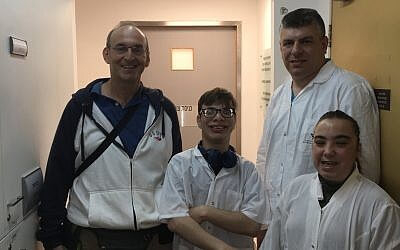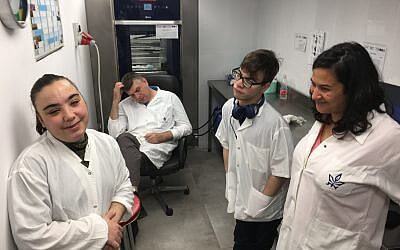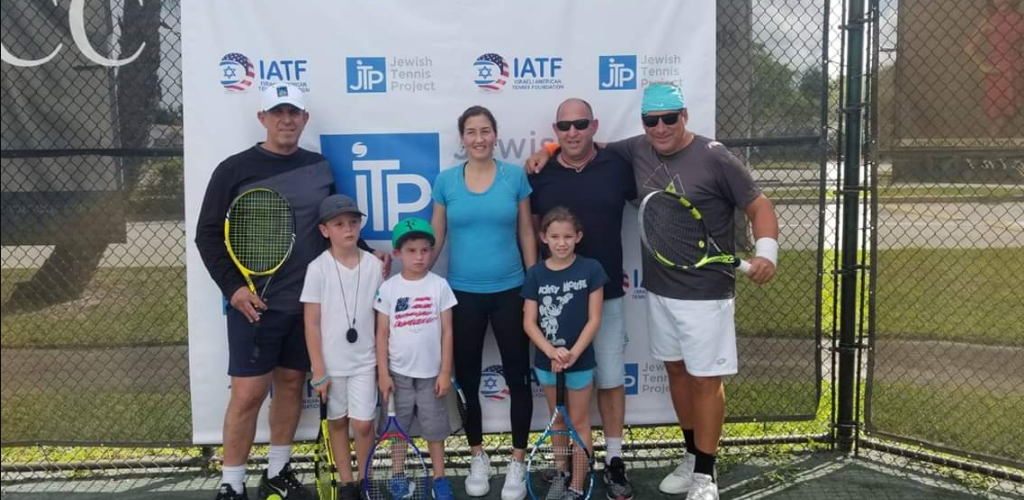Original article published on The New York Jewish Week
AKIM’s Dental Training Program, in collaboration with the TAU dental school and Israel’s Ministry of Labor and Social Affairs teaches employment skills in the dental field.
Visitors to Tel Aviv University’s Goldschleger School of Dental Medicine see something innovative and unsurprising as they enter the building–a vending machine sponsored by Colgate dispensing toothbrushes, mouthwash and other dental equipment. A red heart on the glass reads in Hebrew “My health begins in my mouth.”
When visitors go down one flight, they see something even more extraordinary and innovative—four enthusiastic men and women from AKIM, the National Organization for People with Intellectual Disabilities, in their white lab coats, studying and working at the dental school. These young adults with intellectual and developmental disabilities make up the first cohort in the Dental Sterilization Officer Training Program, a collaborative venture of AKIM, the TAU dental school, and the Ministry of Labor and Social Affairs.
The one-year training program started in October, 2018. Trainees participate five days a week—from Sundays through Thursdays–in theoretical and practical coursework. They learn important terminology and receive theoretical training in sterilization, disinfection and hygiene. They collect equipment from various departments, sterilize instruments and carefully scan codes to assure proper tracking of sterilized equipment. Participants work in the dental warehouse, where they prepare and deliver orders of equipment and substances for various clinics, and they learn and perform various administrative tasks.

In addition, the trainees interact on a daily basis with the university’s dental students. They learn together in some classes, work in the dental clinics, and socialize in the hallways and dining rooms. The participants with disabilities have the additional important job of working in a TAU dental clinic which specializes in treating people with disabilities. Shani Yeshurun, AKIM Israel’s director of international relations, explains, “Everybody feels anxious when they go to the dentist. By seeing and interacting with people like themselves, the stress level of the patient with a disability is reduced.”
On a recent visit, three participants—Amir, Michael and Yael and their mentor, Donna, invited me to tour and witness the sophisticated sterilization equipment. They took turns explaining how the state-of-the-art autoclave sterilizes the equipment, is logged in and prepared for delivery. Michael travels independently each day for Netanya and hopes to get a job closer to home upon graduation. Yael patiently demonstrated how sterilized equipment is packaged and arranged in the store room.

Dr. Rada Sumareva, a New York and New Jersey area periodontist and implant surgeon, sees tremendous benefits of the program beyond the practical job skills obtained by the trainees. “By training next to the dental students, the dental students will have a different perspective on people with disabilities. It is one thing to know about disabilities in theory; it is another to have a classmate with a disability and to train together, side by side. This will be very useful when they one-day employ the program graduates in their offices.” She is confident that this will “lead to a culture change in the way we train dentists.”
Sumareva also notes “a tremendous sense of ambassadorship” by having people with disabilities work in the clinics with patients with disabilities. “Patients and their families will see that people with disabilities can integrate, have a job and have a purpose in life!”
Sumereva serves as vice president of AKIM USA and is a member of TAU’s Board of Governors and American Friends of Tel Aviv University’s Board of Directors. Despite her personal deep connection to both dentistry and disabilities, it was her son, Robert Ukrainsky, who helped create the dental sterilization officer training program. While studying for his bar mitzvah several years ago, he participated in the “Give a Mitzvah, Do a Mitzvah” program of the UJA-Federation of New York. Robert, now a 10th grader at the Avenues: The World School in New York City, is a founding member and chair of the Young Friends of AKIM and has donated over $22,000 to date for the TAU/KAIM dental training program.
The first group of graduates will be employed by both the Tel Aviv University Dental Clinic and by AKIM’s network of 22 specialized dental clinics throughout Israel which specialize in treating people with disabilities. AKIM will offer ongoing employment guidance and job placement services to graduates, who will also have the option of working in other AKIM] [non-dental clinics throughout the country
AKIM was founded in 1951 and strives to promote quality of life and improve the welfare of people with Intellectual disabilities and their relatives. They currently work throughout Israel to serve 35,000 people and 140,000 family members.
Sumareva dreams of bringing both specialized clinics for people with disabilities and a dental training program like the one at Tel Aviv University to the United States.
The issue of lack of adequate dental care for people with disabilities has been in the news a lot in recent weeks:
To address this problem, in 2012 the Commission on Dental Accreditation mandated that all dental students learn to assess the treatment needs of people with disabilities. And New York University recently open the N.Y.U. College of Dentistry’s Oral Health Center for People with Disabilities. It will both offer exceptional care for patients with a wide range of disabilities, and it will provide dentists with necessary skills and experience for treating patients with disabilities. Dr. Ronald Kosinski, the Center’s director, acknowledges the historical lack of adequate care for people with disabilities—and of negative attitudes toward people with disabilities. He is insistent that society begin to do a better job. “People are afraid of them,” he said. “They are not looked at like people. We need to train dental students to stop throwing their hands up and to start embracing them.”
Thanks to AKIM and Tel Aviv University, important efforts are already underway in Israel for training dental students and people with disabilities, and attitudes are changing. The United States and other countries can surely benefit from Israel’s experiences thus far.




